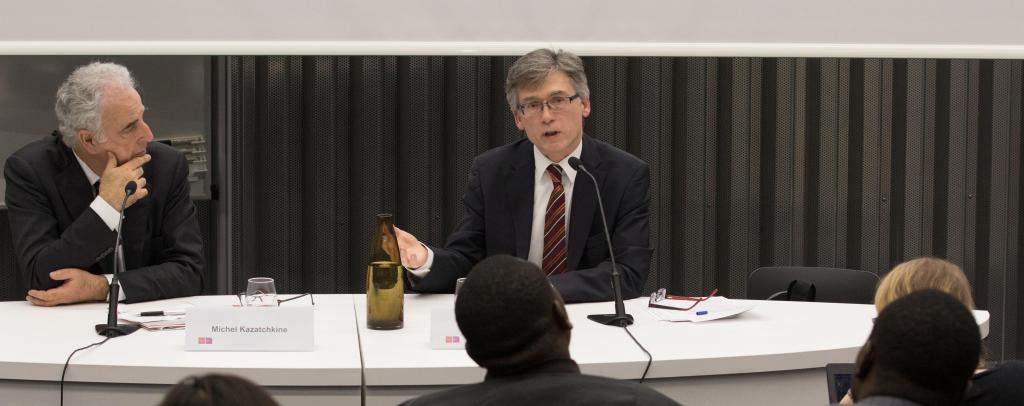“If there is just one preventable death related to drugs, we need to act – It is a human rights issue”, with these words Jan Malinowski, Executive Secretary of the Pompidou Group of the Council of Europe, delivered a strong message at the dialogue session on the health and human rights dimensions of drug policies organised by the Global Health Programme and the Global Commission on Drug Policy on 22 February 2016 at the Maison de la paix. The Pompidou Group – or Co-operation Group to Combat Drug Abuse and Illicit Trafficking in Drugs – is an inter-governmental platform aiming at providing innovative, alternative approaches to drug policy with a strong accent on human rights as it acts within the framework of the Council of Europe.
One key word emerged at the event with regard to the work of the Pompidou Group, but also to drug policies more generally: “balancing”. Firstly, balancing is an important factor when looking at the Group’s members, including countries with divergent interests and approaches. Mr Malinowski pointed out that this geographical distribution can be an advantage in advancing a common language and understanding of key human rights and health concepts in the drug policy discourse among countries with different positions. Furthermore, country representatives attending the Pompidou Group’s meetings are constituted by a mix of health and criminal justice professionals, which allows for a more balanced multidisciplinary approach away of mere drug control. When talking of human rights, balancing also refers to the responsibilities of the state towards its citizens – including the right to freedom, ensuring the protection and well-being of the population, and the rights of persons deprived of liberty.
The event also highlighted a great number of challenges in rethinking drug policies: the human rights work related to drugs is only starting, and a strong evidence base to guide policies is still lacking. Furthermore, broader challenges related to migration and displaced persons, gender issues, and conflicts also have complex impacts on drug use and trafficking, requiring an integrated response across sectors at all levels. As Jan Malinowski underlined, it will be fundamental not to name and shame countries, but to work more closely with governments and the civil society to promote policy change and accountability. The United Nations General Assembly Special Session (UNGASS) on the world drug problem, which will take place in April 2016, will be an important milestone in the dialogue on policy reform, but sustained political commitment will be needed to effectively tackle drug-related health and human rights consequences. The many health and human rights actors in Geneva have a responsibility to engage in this process, as preventable deaths, poor health, and human rights violations are occurring daily.


